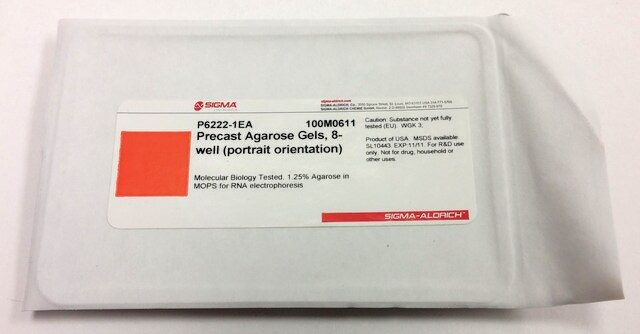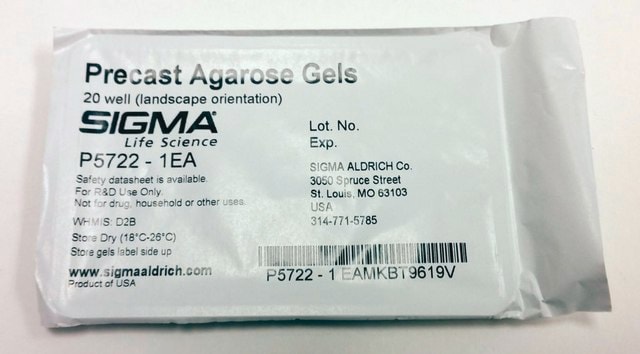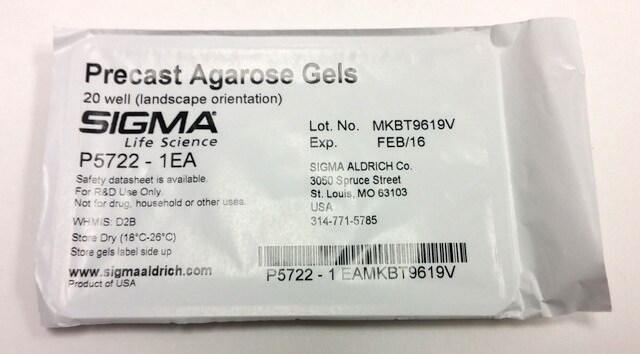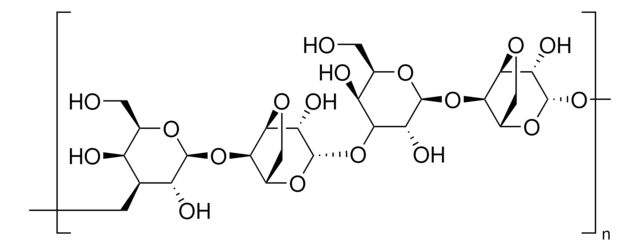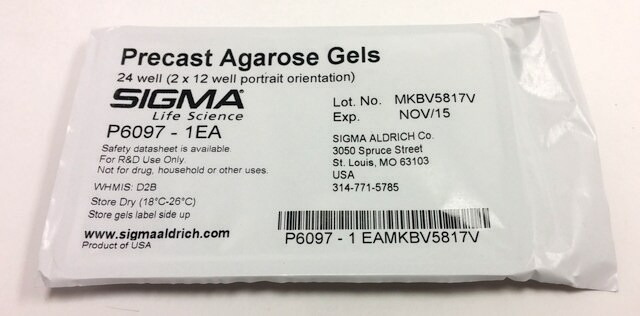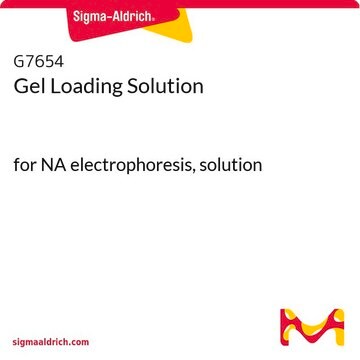P5472
Precast Agarose Gels
8-well (portrait orientation)
Synonym(s):
Precast agarose gels for high resolution nucleic acids separation
About This Item
Recommended Products
grade
for molecular biology
Quality Level
form
gel form
contains
0.5 μg/mL ethidium bromide
storage temp.
room temp
Looking for similar products? Visit Product Comparison Guide
General description
Gel size: 6.0 × 9.5 cm, 5.5 mm thick
Cassette size: 6.8 × 10.2 cm container tray (fits common horizontal electrophoresis units)
Well orientation: 8-well, portrait style
Application
TBE - agarose gels are available in two common concentrations (1% and 4%) for DNA electrophoresis. Ethidium bromide (0.5 μg/ml) is included in the TBE-agarose gels for easy visualization. TBE-agarose gels are available in 8, 20 and 24 well formats. The separation range for the 1.0% gel is 500-1000 bp and 8-1000 bp for the 4% gel.
MOPS - agarose gels (1.25%) are available without denaturants (e.g. formaldehyde or glyoxal) for the analysis of total RNA, in vitro RNA transcripts, and Northern blotting. RNA electrophoresis usually does not interfere with staining. If significant secondary structure is suspected, the RNA should be denatured by a method listed in the product insert. The separation range for the 1.25% MOPS gel is 0.25-10 kb.
Packaging
Components
Other Notes
RNA agarose gels contain 1× MOPS (20 mM MOPS, 5 mM sodium acetate, 1 mM EDTA and 1 mM EGTA, pH 7.0)
Quality
Physical form
Cassette size: 6.8 × 10.2 cm container tray; fits common horizontal electrophoresis units
Sample format: 8-well (portrait), 20-well (landscape), 24-well (2 × 12 well portrait)
related product
Storage Class Code
13 - Non Combustible Solids
WGK
WGK 3
Flash Point(F)
Not applicable
Flash Point(C)
Not applicable
Personal Protective Equipment
Choose from one of the most recent versions:
Certificates of Analysis (COA)
Sorry, we don't have COAs for this product available online at this time.
If you need assistance, please contact Customer Support.
Already Own This Product?
Find documentation for the products that you have recently purchased in the Document Library.
Customers Also Viewed
Protocols
These gels are suitable for separating nucleic acids, giving sharp DNA bands and low background fluorescence.
Our team of scientists has experience in all areas of research including Life Science, Material Science, Chemical Synthesis, Chromatography, Analytical and many others.
Contact Technical Service